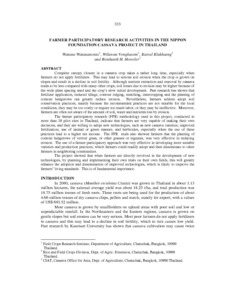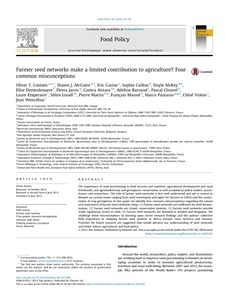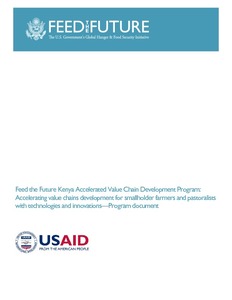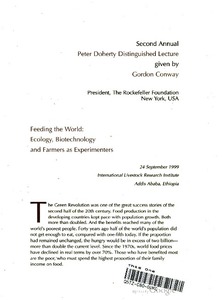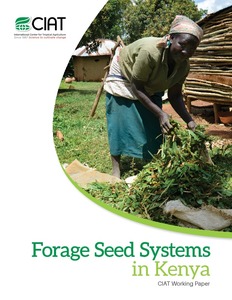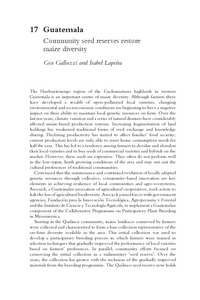Farmer seed networks make a limited contribution to agriculture? Four common misconceptions
The importance of seed provisioning in food security and nutrition, agricultural development and rural livelihoods, and agrobiodiversity and germplasm conservation is well accepted by policy makers, practitioners and researchers. The role of farmer seed networks is less well understood and yet is central to debates on current issues ranging from seed sovereignty and rights for farmers to GMOs and the conservation of crop germplasm. In this paper we identify four common misconceptions regarding the nature and importance of farmer seed networks today.
Feed the Future Kenya Accelerated Value Chain Development Program: Accelerating value chains development for smallholder farmers and pastoralists with technologies and innovations—Program document
Fodder banks: For pastoralists or farmers
Outlines the principles and practices of fodder-bank establishment and management in the sub-humid zones of West Africa. Summarises data that indicate the benefit of fodder banks to subsequent crops.
From plot to watershed management: Experience in farmer participatory Vertisol technology generation and adoption in highland Ethiopia
This chapter summarises the experience of a research project for developing and disseminating technologies for better management of Vertisols for improving productivity.
Gender relations and water management in different eco-cultural contexts in northern Thailand
This paper assessed water management by households from three ethnic groups in two contrasting ecological settings (upland and lowland) in the Upper Ping River Basin in Northern Thailand. Important gender differences in the use and management of water were identified. Women are major users of water for agriculture in the uplands, but less so in the lowlands. In the lowlands irrigation is viewed as a masculine activity. In the uplands the role of women is more widely accepted, with women frequently being members of water user groups.
General comments related to rapid rural surveys, Cerrados : crop pasture integration
Groundwater irrigation for smallholders in Sub-Saharan Africa – a synthesis of current knowledge to guide sustainable outcomes
Groundwater irrigation for smallholder farmers in Sub-Saharan Africa is growing in extent and importance. This growth is primarily driven spontaneously by the farmers themselves, spurred by improved access to low-cost technologies for pumps and drilling services as well as market opportunities for produce. This paper presents a review of the current status and knowledge of the prospects and constraints for sustainable and pro-poor groundwater irrigation in Sub-Saharan Africa.

